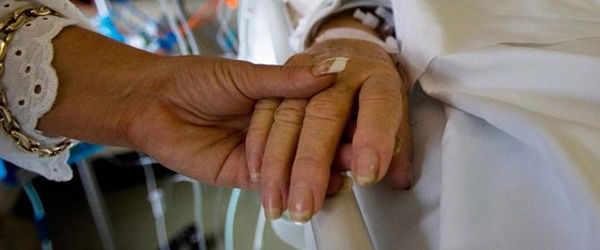An interfaith panel of representatives of Jewish, Hindu, Christian, Muslim, Buddhist, Sikh and Zoroastrian religions discussed their beliefs March 7 on the campus of Bishop Montgomery High School in Torrance. Bernadette St. James, Bishop Montgomery religion teacher who organized the interfaith panel, opened up the dialogue by quoting from the Vatican II document Nostra Aetate: “The Catholic Church rejects nothing of what is true and holy in other religions (n. 2).”
Each panelist was asked to answer a series of questions, and given five minutes to share his or her perspective. Among the questions: “How does your religion connect to God?” and “How did 9/11 affect your religion?” After the discussion, students were invited to query the panel.
Mobed Maneck Bhujwala, a member of the California Zoroastrian Center in Westminster, encouraged daily prayer to “remind us of our spiritual aspect.” In contrast to a fast-paced lifestyle, daily prayer “takes us away from that material world,” he said.
Nirnijan Singh Khalsa, executive director of the California Sikh Council, explained that one of the fundamental cornerstones of Sikhism was “simram” --- constantly meditating on God. “In the back of your mind,” Khalsa said, “you should always think about God first, even before every action, even before every thought when possible.”
Dr. Rini Ghosh, who represented Hinduism, said her religion believes that “the divine is present in each one of us. The divine in me respects the divine in each one of you.” She used the ocean as a metaphor to explain divinity: The supreme power is the ocean and the people are the waves. Dr. Ghosh added that Hinduism demands adherence to “the moral ethics of life.”
Hafez Mahmoud Hafez, a member of the Council on American Islamic Relations of the Greater Los Angeles Area, said that we may know God’s attributes but we don’t know what God is like. He noted that Muslims worship God with blind faith: “We don’t know why he tells us to do this, just that he is greater.”
Father Edward Benoiff, chaplain at Bishop Montgomery, stressed the importance of having a horizontal relationship with others as well as a vertical relationship with God. “There is a didactic relationship between the vertical and the horizontal,” he said. “If we ask God for help, we should help each other.”
Bishop Montgomery students responded enthusiastically to the panelists with their own questions. Afterward, many called the experience enriching and educational, and said they would like to see such interaction more often among religions. As one student said, “I really liked how each of the panelist speakers seemed to get along and like one another. They were smiling and hugging at one point and that was a surprising new experience for me.”
{gallery width=100 height=100}gallery/2012/0316/interfaith/{/gallery}

